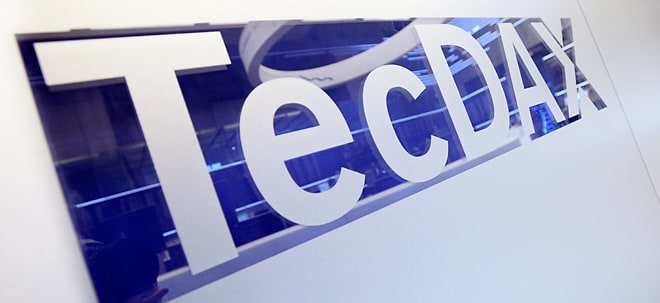Gestern wurden die Ergebnisse einer über 5 Jahre angelegten Vergleichsstudie der Cholesterin-Senker Lipitor (Pfizer) und Zocor (Merck) veröffentlicht. Lipitor schnitt besser ab, aber nicht deutlich besser (siehe unten). Zur Studie ist auch ein Artikel in der New York Times erschienen - sicher mit ein Grund, weshalb PFE heute wieder deutlich fiel. Mercks Zocor-Patent läuft nächstes Jahr aus. Vor dem Hintergrund der Studie wird nun befürchtet, dass Lipitor-Patienten dann auf billigere Zocor-Generika umschwenken. In der Praxis jedoch wechseln Patienten ihr Medikament nur ungern, sofern sie damit bislang gut zurechtkamen. Immerhin droht Herzinfarkt - in USA der Killer Nr. 1.
IMHO ist im Pfizer-Kurs inzwischen selbst ein Totalausfall von Lipitor - sei es durch einen Sieg Ranbaxys, sei es durch die Zocor-Generika - eingepreist. Letzten Sommer, als die Lipitor/Celebrex-Welt noch in Ordnung war, stand PFE bei 36 Dollar, jetzt bei 21,30. Das sind 40 Prozent weniger. Dabei macht Lipitor "nur" 20 % von Pfizers Gesamtumsatz aus. Das Pfizer-KGV von 9,5 spricht ja bereits Bände...
Fuzzi: Heute ist evtl. ein guter Tag für Deinen Einstieg bei Pfizer.
------------
Robert Steyer
Mixed Findings for Pfizer
By Robert Steyer
TheStreet.com Staff Reporter
11/15/2005 5:17 PM EST
In a battle of the world's biggest-selling cholesterol drugs, researchers say high doses of Pfizer's (PFE:NYSE) Lipitor doesn't offer a benefit over regular doses of Merck's (MRK:NYSE) Zocor when measuring major coronary events among patients who had previously had a heart attack.
For the Pfizer-sponsored test of nearly 8,900 patients, researchers say "major coronary events" include heart disease-related death, heart attack and cardiac arrest, but excludes stroke. Lipitor patients had 11% fewer major coronary events, but the difference failed to achieve statistical significance.
"This was not an optimal result, but neither was it a clear-cut negative for the company," says Chris Shibutani of JP Morgan in a research note reaffirming his overweight rating on Pfizer. The study was presented Tuesday at the American Heart Association's annual meeting in Dallas.
These results could further cloud Wall Street's ability to predict Lipitor's sales-growth prospects, especially because Zocor loses U.S. patent protection next year, thus setting the stage for a flood of generic copies.
Just a month ago, Pfizer released third-quarter results that disappointed analysts, partly because Lipitor's U.S. revenue rose only 1%. The company also reduced its 2005 earnings estimates and withdrew its 2006 and 2007 predictions.
Worldwide Lipitor sales for the third quarter rose 6% to $2.9 billion. The company blamed the U.S. performance on increased competition.
However, Tuesday's results weren't a total setback for Pfizer, which sponsored the five-year test in which the highest dose of Lipitor (80 milligrams) was matched against mid-range doses of Zocor (20 milligrams to 40 milligrams). The recommended starting dose for Lipitor is 10 milligrams to 20 milligrams, and the highest Zocor dose is 80 milligrams.
Researchers say Lipitor patients achieved a significant 17% reduction in nonfatal heart attacks vs. Zocor patients, as well as a significant 13% reduction in stroke plus major coronary events.
Still, it will take some time before analysts can assess the study's economic impact on Pfizer because there's more to assessing Lipitor's sales prospects than just science. Lipitor continues to be challenged by other brand-name cholesterol-fighting drugs class, but the biggest challenge comes next spring when Zocor and Bristol-Myers Squibb's (BMY:NYSE) Pravachol lose U.S. patent protection. Zocor had $5.2 billion in sales last year; Pravachol had $2.6 billion. Lipitor had $10.9 billion in sales last year.
Analysts have been unsure how Lipitor would be affected by upcoming generic competition. If the Lipitor-Zocor test had provided an emphatic win for Pfizer, it might have been easier for them to assess the impact.
"Prescribers are still generally likely to select Lipitor over Zocor based on these data," said Shibutani. "But the study will not yield as strong marketing materials as Pfizer would have hoped." He doesn't own shares, but his firm has had a recent non-investment banking relationship with Pfizer.
"While we would like to see more details, such as overall mortality, we do not think today's results in and of themselves will dramatically change practice patterns, since Lipitor still had a slight benefit," says San Diego's Sagient Research Systems, whose BioMedTracker report analyzes pharmaceuticals.
"While many physicians will still favor Lipitor, price is likely to become an increasing factor for patients and payors" as generic Zocor drugs proliferate, says Sagient, which doesn't own shares and doesn't have a financial relationship.
Doctors are reluctant to switch a patient to another cholesterol drug if the patient's current drug is effective and isn't causing side effects. And it's too early to tell if the Lipitor-Zocor test will answer a few key questions, namely whether doctors will start new patients on generic Zocor vs. brand-name Lipitor and how health maintenance organizations and other managed care companies respond.
Pharmacy benefits manager Express Scripts (ESRX:Nasdaq) didn't wait for the Lipitor-Zocor comparison test.
Last month, the company said it would guide customers to generic Zocor and away from Lipitor next year by removing Lipitor from its preferred list of brand-name drugs. That means patients whose doctors prescribe Lipitor will pay more money out-of-pocket than if Lipitor had remained on this preferred list known as a formulary. If more big pharmacy benefit managers and managed care firms follow Express Scripts' lead, Lipitor's sales will be under pressure.
"We believe managed care will try to use these data to substitute generic Zocor in mid-2006," said James Kelly of Goldman Sachs in a research note Tuesday. Kelly, who has an outperform rating, previously forecast no prescription growth in the U.S. for 2006 and 2007. "Marketing will be tough," says Kelly, who doesn't own shares and whose firm has had an investment banking relationship.
Pfizer's shares closed down 36 cents, or 1.6%, to $21.89, after having dipped as low as $21.70. The stock also was affected by favorable test results involving experimental Pfizer drugs for raising so-called good cholesterol and for helping people stop smoking.
The Lipitor-Zocor test, whose acronym is IDEAL, tested patients whose average age was 62 and who had a previous heart attack. Unlike previous clinical trials involving the statin class of cholesterol drugs, most IDEAL patients were already receiving statins, high-blood pressure drugs known as beta-blockers and aspirin prior to entering the study.
"The majority ... were taking multiple therapies to lower their cardiovascular risk prior to entering the trial," said Dr. Terje Pedersen, head of the Centre for Preventive Medicine at Ulleval University Hospital, Oslo Norway, and the lead investigator for IDEAL.
"These results show us that intensive lipid lowering therapy with Lipitor can significantly reduce a patient's likelihood of experiencing another devastating event such as a heart attack or stroke, or the need for bypass surgery compared to patients taking standard Zocor therapy," said Pedersen in a press release issued by Pfizer.
Pfizer said the average LDL-cholesterol level of patients entering the trial was 122. LDL is often referred to as bad cholesterol. "With intensive Lipitor therapy, patients were able to lower their LDL-cholesterol levels even further to an average of 81," Pfizer said. "This was significantly lower than patients taking Zocor, who had an average LDL-cholesterol level of 104." |


 Thread abonnieren
Thread abonnieren

